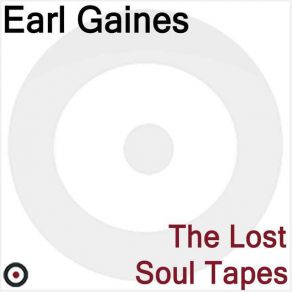The Lost Soul Tapes
Download links and information about The Lost Soul Tapes by Earl Gaines. This album was released in 2006 and it belongs to Hip Hop/R&B, Soul, Blues, Jazz genres. It contains 20 tracks with total duration of 56:47 minutes.

|
|
|---|---|
| Artist: | Earl Gaines |
| Release date: | 2006 |
| Genre: | Hip Hop/R&B, Soul, Blues, Jazz |
| Tracks: | 20 |
| Duration: | 56:47 |
| Buy it NOW at: | |
| Buy on iTunes $11.99 | |
| Buy on Amazon $8.99 | |
Tracks
[Edit]| No. | Title | Length |
|---|---|---|
| 1. | Turn On Your Love Light | 3:11 |
| 2. | Been So Long | 2:36 |
| 3. | Soul Children | 2:55 |
| 4. | Taking All the Love I Can | 2:45 |
| 5. | Since I lost you | 2:16 |
| 6. | I Can't Face It | 2:58 |
| 7. | Hello My Lover | 2:27 |
| 8. | A Certain Girl | 2:28 |
| 9. | It Take's You | 2:59 |
| 10. | I'll Take Care of You | 2:50 |
| 11. | You're The One | 2:35 |
| 12. | Hymn Number 5 | 3:26 |
| 13. | Yearning and Hoping | 2:28 |
| 14. | Keep Your Mind On Me | 2:59 |
| 15. | Loving Her Was Easier (Than Anything I'll Ever Do Again) | 3:08 |
| 16. | That's How Strong My Love Is | 3:27 |
| 17. | If You Want What I Got | 2:18 |
| 18. | Nine Pound Steel | 3:41 |
| 19. | Trust In Me | 2:46 |
| 20. | You're The One | 2:34 |
Details
[Edit]The history of R&B — like the history of rock, jazz, blues, country, reggae and many other types of music — is not only a history of major stars. It is also a history of unsung heroes who — for whatever reason — fell through the cracks commercially. In 2006, the Australia-based AIM Trading Group acknowledged some of R&B's lesser-known talents with releases by Earl Gaines and the late Geater Davis — both skillful vocalists even though they never came close to the type of superstardom that Marvin Gaye, Otis Redding, and Wilson Pickett achieved. The Lost Soul Tapes focuses on material that Gaines recorded for the small, obscure Seventy-Seven label in the early '70s, including singles, B-sides and outtakes. The best-known track is a memorable, blues-drenched cover of "Hymn #5" (previously recorded by the Mighty Hannibal) and which, according to AIM, was a number 36 R&B hit; the tune is perfect for Gaines' gruff, rugged yet vulnerable delivery. At Seventy-Seven Records, Gaines tended to favor a very southern approach to soul, and most of these enjoyably gritty recordings (which were made in Nashville and Muscle Shoals, AL) would be right at home on a Stax or Malaco compilation. But that is not to say that Gaines was devoid of Northern soul influences in the '70s; the infectious "Soul Children," for example, has an Edwin Starr-ish appeal and might have been a major hit had Gaines enjoyed Motown's promotional muscle. But that is speculation. What we can say with certainty is that serious soul connoisseurs should welcome the release of The Lost Soul Tapes, a collection that is generally solid and — at times — downright excellent.